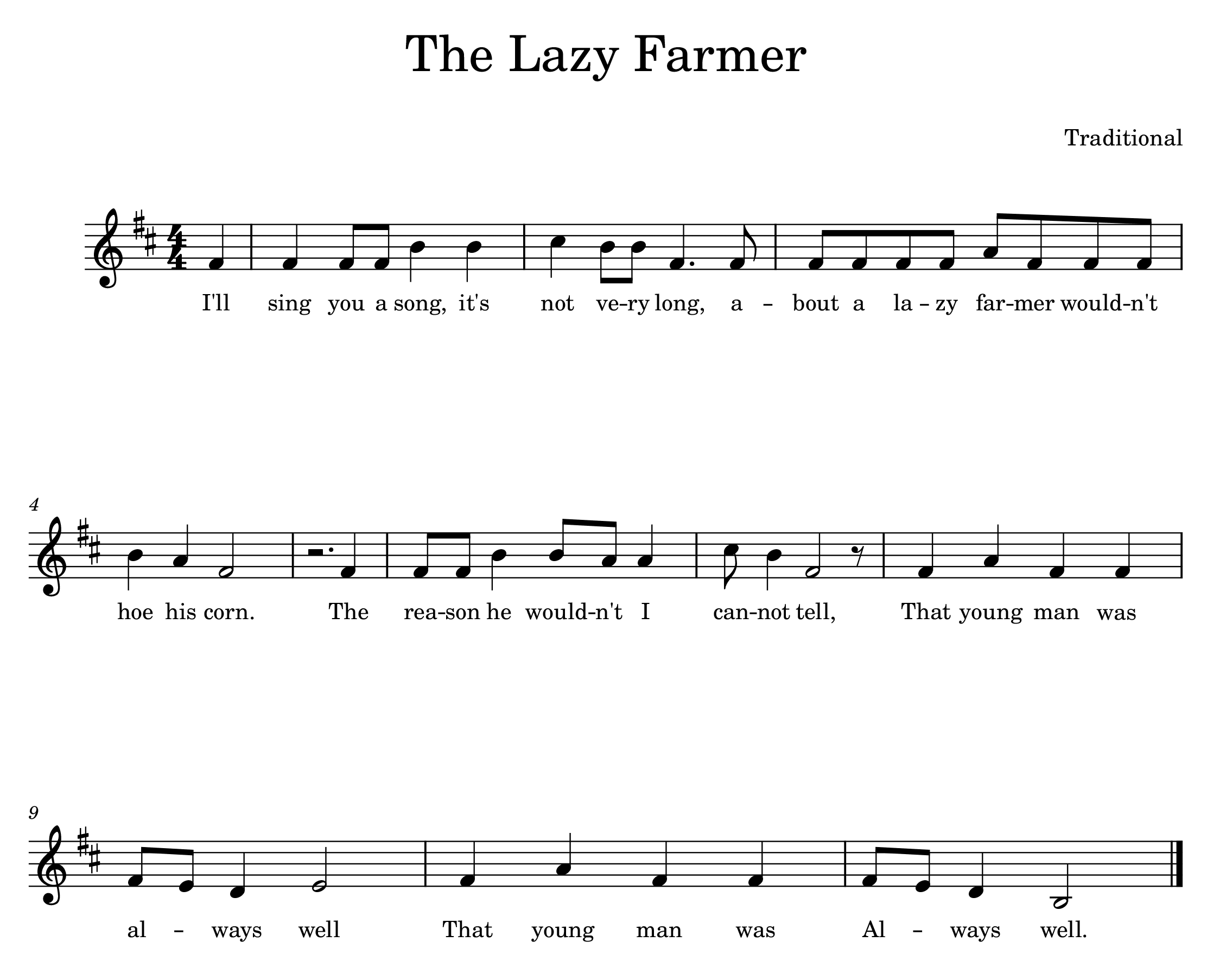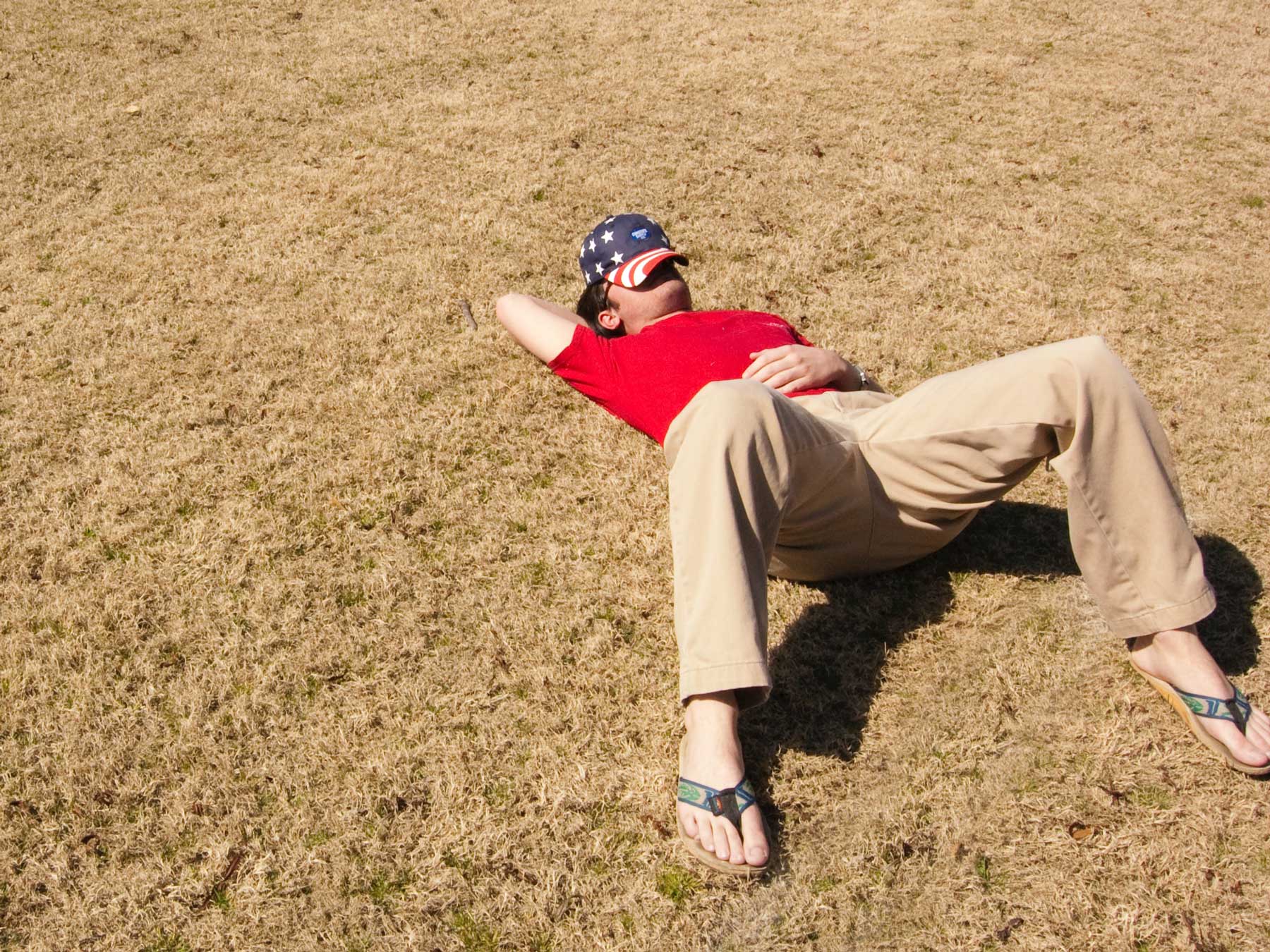(Young Man Who Wouldn’t Hoe Corn)
Submitted by Lea Coryell
This traditional American folksong, perhaps originating in the Midwest, can be traced back to at least 1905. It’s been documented throughout the country, and many different versions exist. I love it because it works well for solo voice and drop-thumb banjo.
Did the young man fail because of laziness or bad weather? Traditional verses offer conflicting reasons, so perhaps we were meant to wonder. In my shortened version, the farmer has nothing and no one to blame but himself. You may choose to characterize it differently, so I include a longer version with fine traditional verses I chose to omit.
Listen to Lea performing “The Lazy Farmer.” Recording copyright Lea Coryell; used by permission.

Lyrics (as sung by Lea Coryell)
The banjo is in modal tuning, capo 4 (bF#BEF#)
I’ll sing you a song it’s not very long
About a lazy farmer wouldn’t hoe his corn
The reason he wouldn’t I cannot tell
That young man was always well
That young man was always well
He went to the field and he looked therein
The jimson weeds were up to his chin
The bushes and the grasses had grown so high
Enough to make that young man cry
Enough to make that young man cry
He went down to his neighbor’s door
Where he had often been before
Sayin’ “Pretty little miss will you marry me?
Pretty little miss now what you say?
Pretty little miss now what you say?”
“Oh why do you come to me to wed
When you can’t even raise your own cornbread?
Single I am and so I’ll remain
A lazy man I won’t maintain
A lazy man I won’t maintain
“Now why don’t you go and court the widow
And I hope to the dickens that you don’t get her”
She give him the mitten just as sure as you’re born
And all because he wouldn’t hoe corn
All because he wouldn’t hoe corn
All because he wouldn’t hoe corn
All because he wouldn’t hoe corn
Lyrics (as sung by Tom Paley)
I’ll sing you a song it’s not very long
About a lazy farmer wouldn’t hoe his corn
The reason why I cannot tell
For that young man was always well
That young man was always well
He planted his corn on June the last
In July it was up to his eye
But in September there came a great frost
And all that young man’s corn was lost
All that young man’s corn was lost
He went to the field and he looked therein
The bushes and the grass had grown so high
The bushes and the grass had grown so high
For to make that young man sigh
For to make that young man sigh
His courtship had just begun
She said “Young man, have you hoed your corn?”
“I’ve tried, I’ve tried, I’ve tried in vain
But I don’t believe I’ll raise one grain
I don’t believe I’ll raise one grain”
“Why do you come to me to wed
When you can’t even raise your own cornbread?
Single I am and I will remain
A lazy man I won’t maintain
A lazy man I won’t maintain
“Now why don’t you try and court the widow
I hope to the devil that you don’t get her”
She give him the mitten as sure as you’re born
And all because he wouldn’t hoe his corn
All because he wouldn’t hoe corn
Now his courtship was at an end
On his way he then began
Saying “Young miss, I’ll have another girl
If I have to ramble this whole wide world
If I have to ramble this whole wide world”
He hung his head and he turned away
“Sometime, Miss, you’ll rue the day
You’ll rue the day that you were born
For givin’ me the devil cause I wouldn’t hoe corn
Givin’ me the devil cause I wouldn’t hoe corn”
Lea Coryell, an Ohio native now living in Lovettsville, Virginia, began folk singing during the late 1970s. He is a retired librarian, a genealogist, and a founding member of the Reston-Herndon Folk Club in Virginia.


 Thanks to the Massachusetts Cultural Council for their generous support.
Thanks to the Massachusetts Cultural Council for their generous support.
 Isaac Banner
Isaac Banner Seth Tepfer
Seth Tepfer Christa Torrens
Christa Torrens Ellie Shogren
Ellie Shogren Sharon Green
Sharon Green Dilip Sequeira
Dilip Sequeira